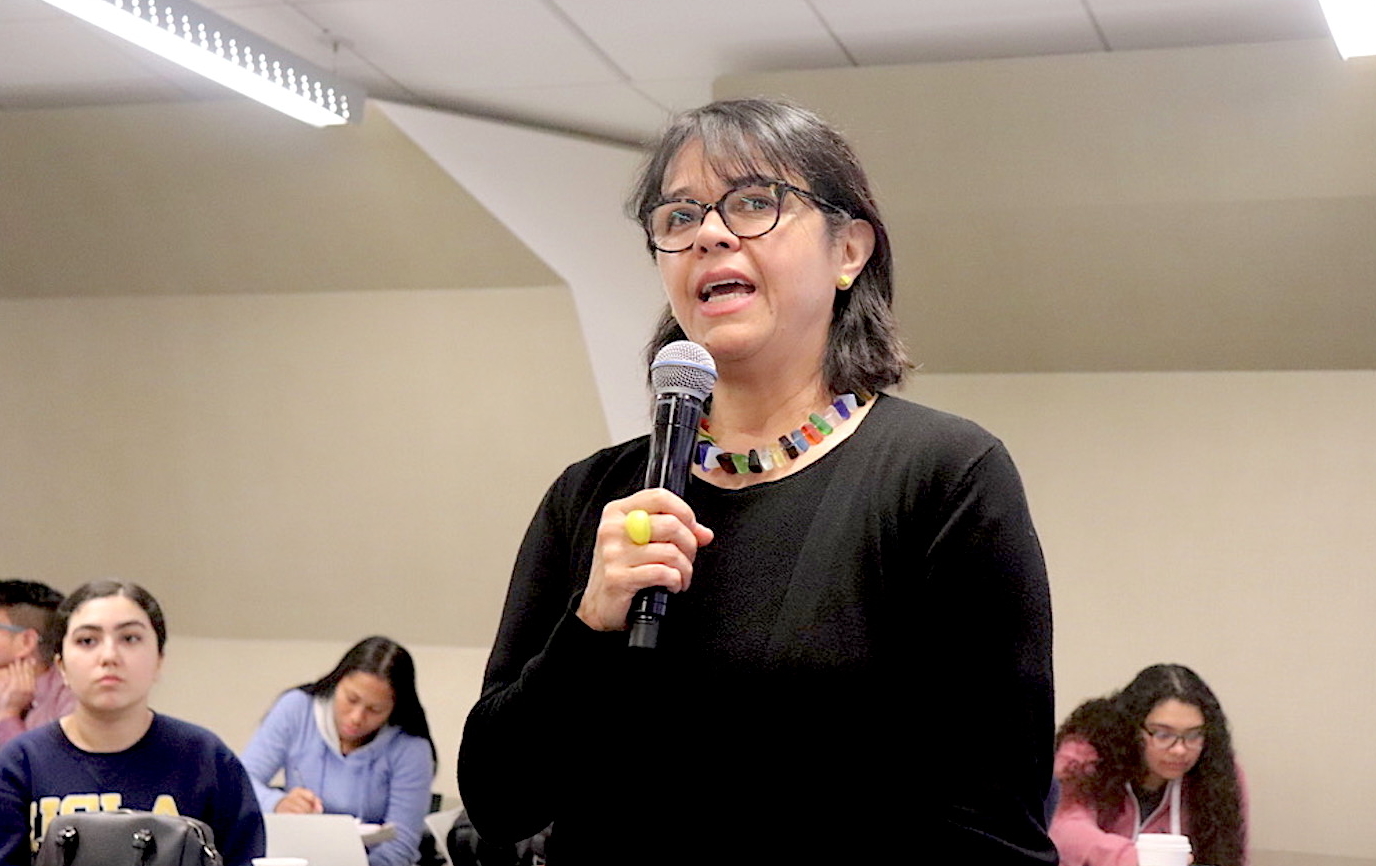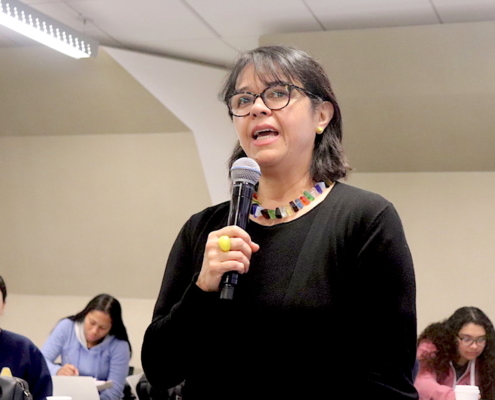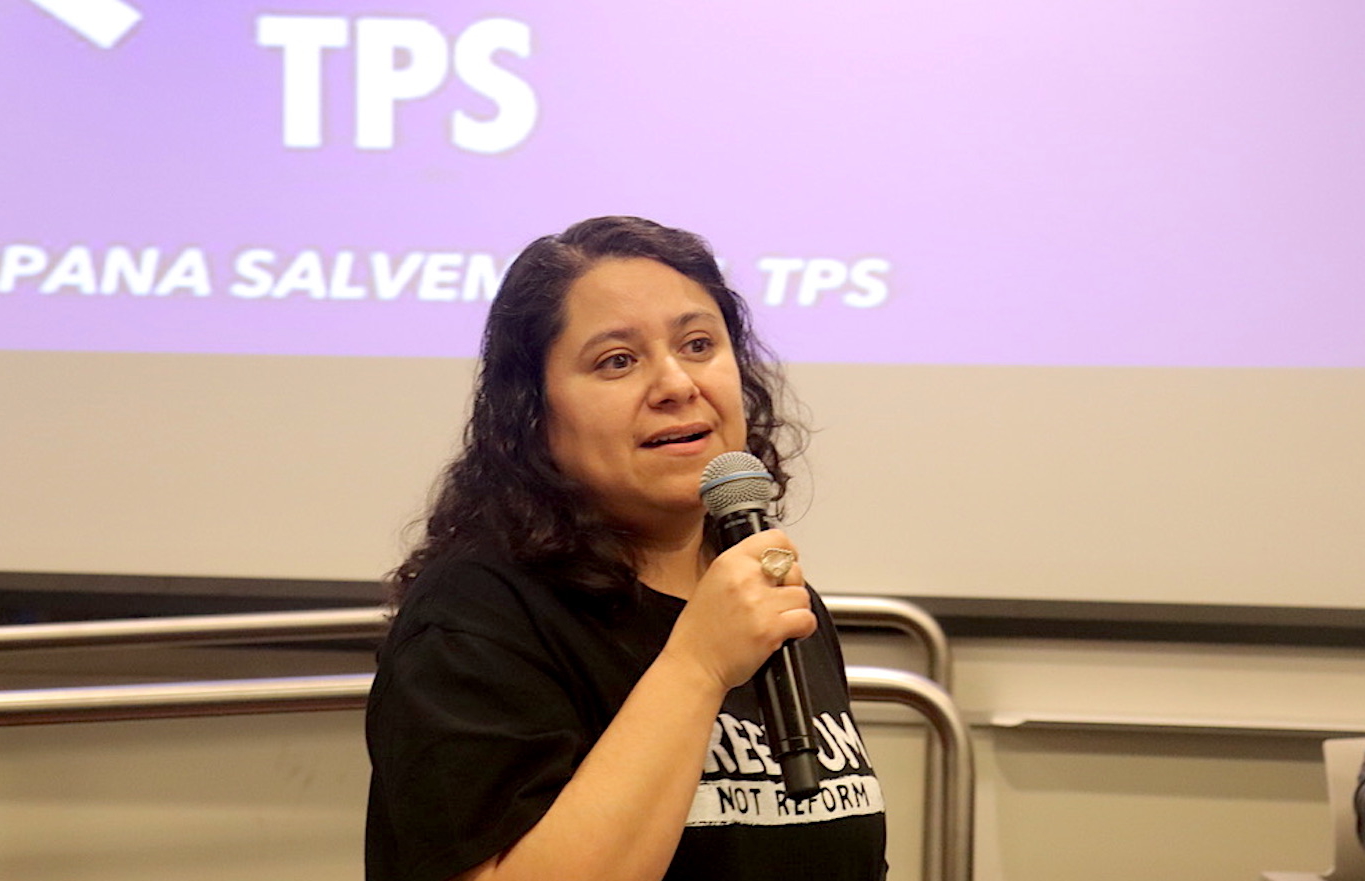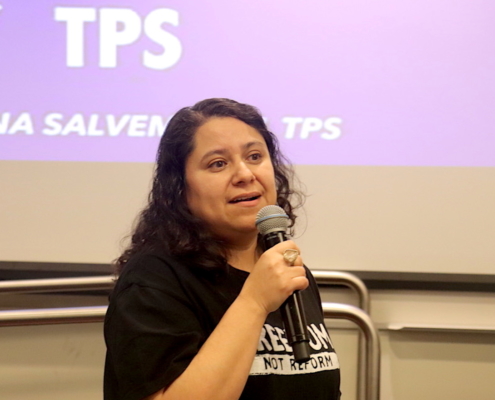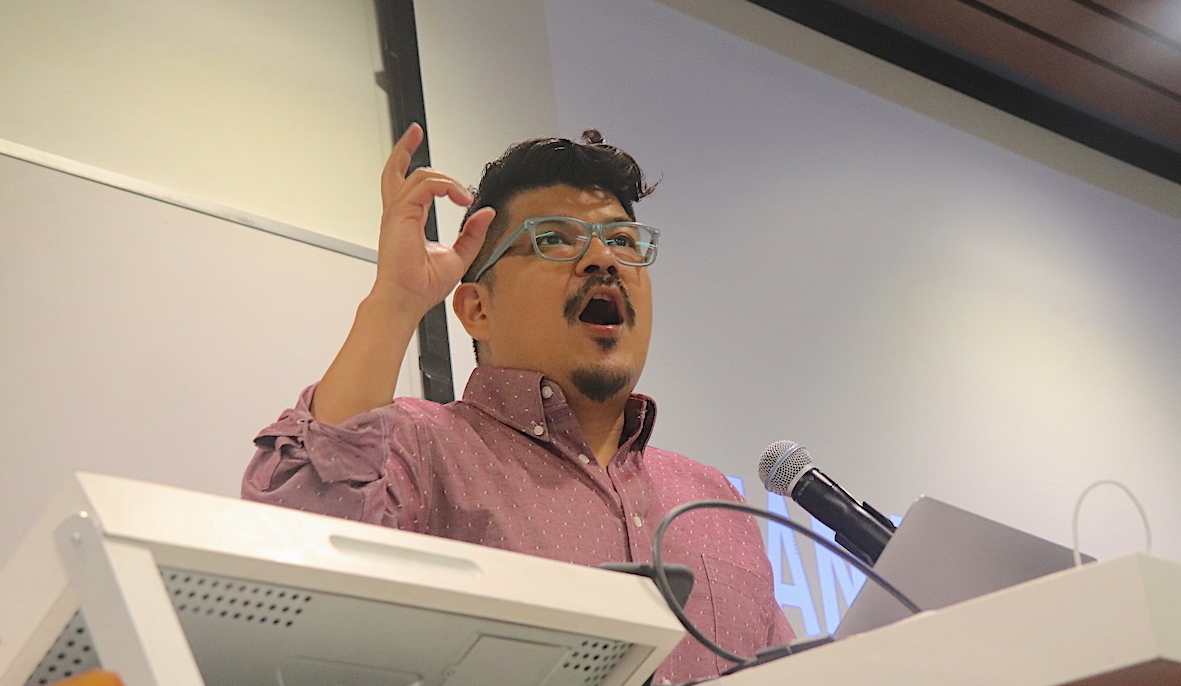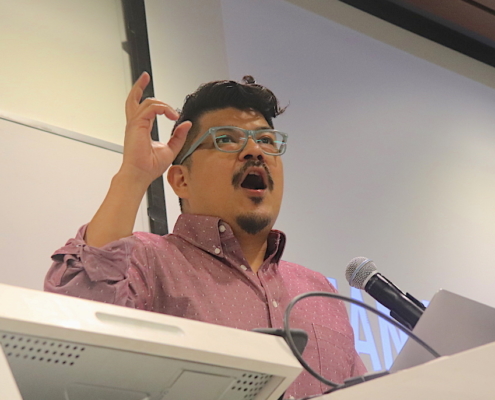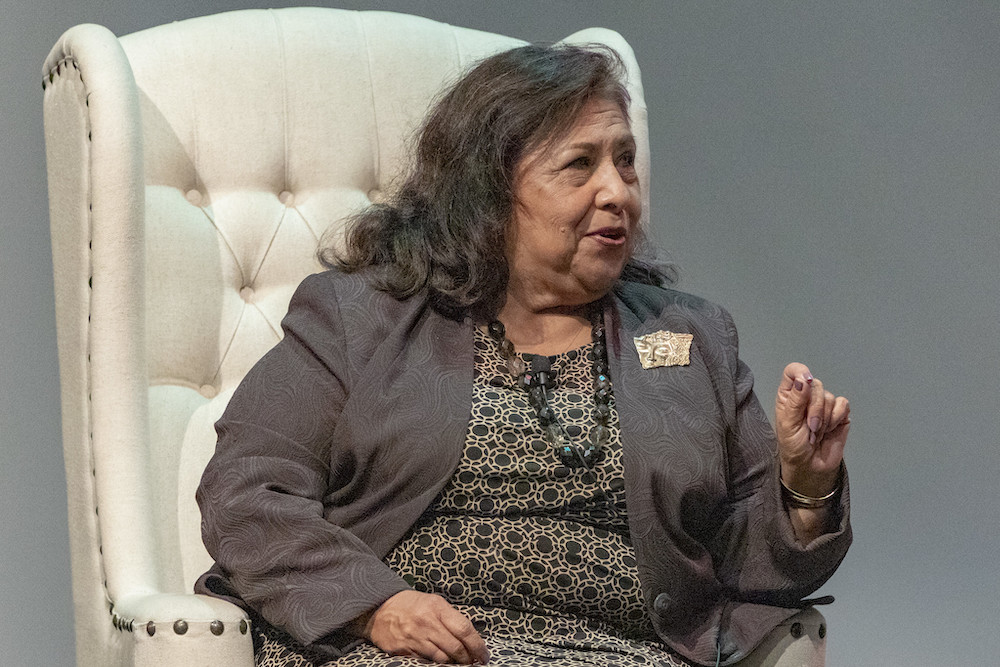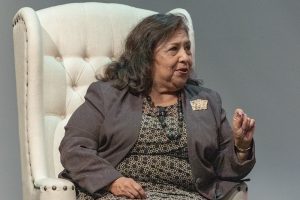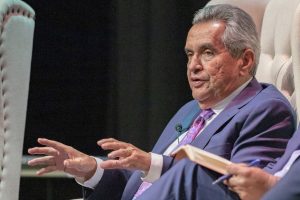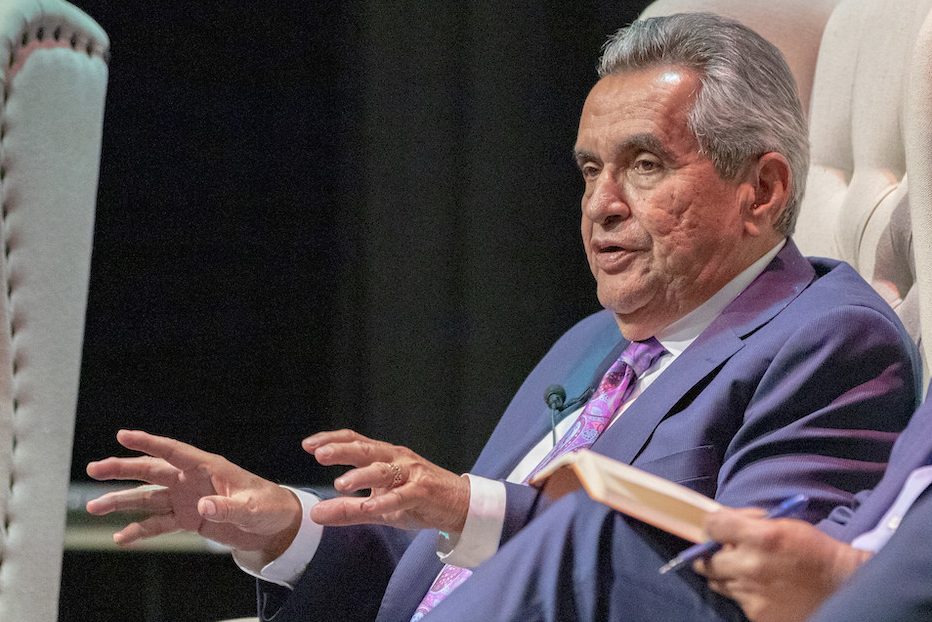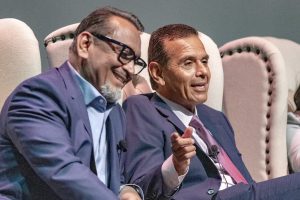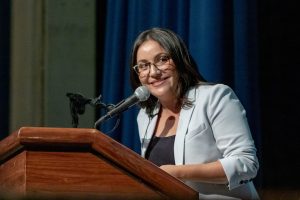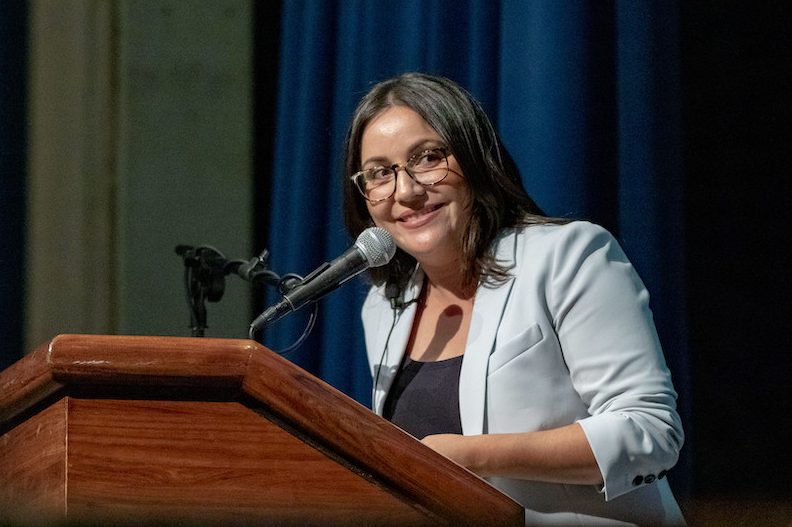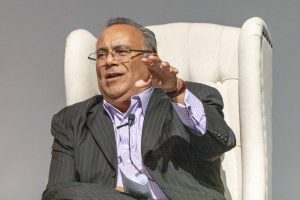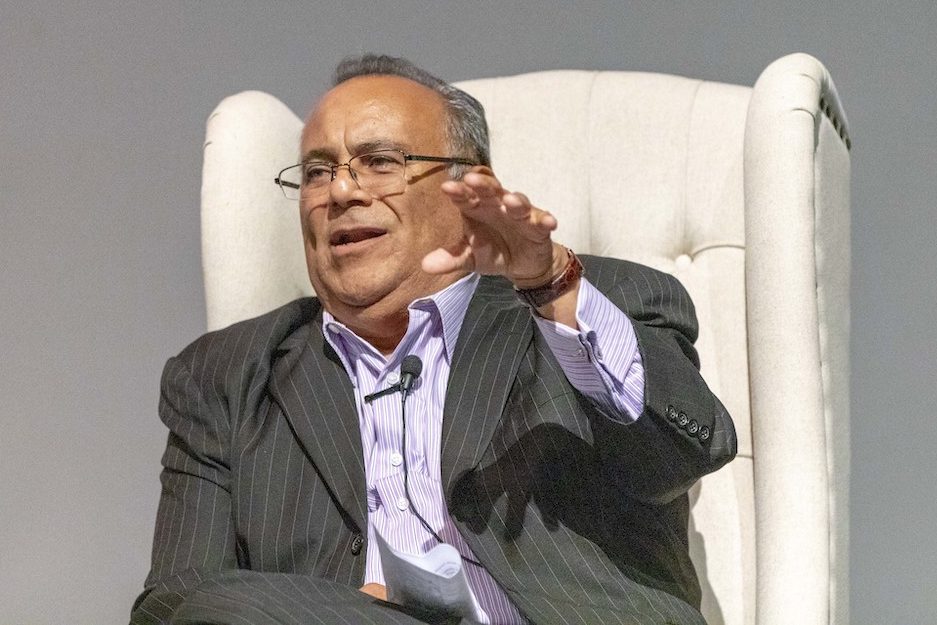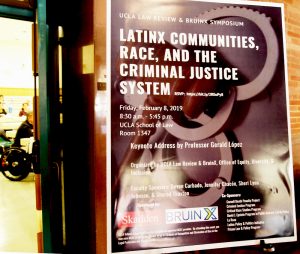By Stan Paul
Leo Estrada, associate professor emeritus of urban planning at the UCLA Luskin School of Public Affairs, died Nov. 3, 2018, following a lengthy illness. He was 73.
Estrada came to UCLA in 1977, joining the faculty of what was then UCLA’s Graduate School of Architecture and Urban Planning under the late Harvey Perloff, who was known as the dean of American urban planners.
A native of El Paso, Texas, Estrada had held academic appointments previously at the University of North Texas, University of Texas at El Paso and the University of Michigan. He received his undergraduate degree from Baylor University and his master’s and doctoral degrees from Florida State University.
During his decades of service at UCLA, Estrada was recognized as an expert demographer and an urban planning researcher and teacher. He also was a fierce and effective advocate for Latino voting, civil rights and representation, said UCLA Luskin Dean Gary Segura, and someone who made huge contributions to UCLA.
“Throughout his career, Leo Estrada distinguished himself as a mentor, adviser and advocate for the careers of countless young planners and scholars, many students and faculty of color, and so much more,” Segura said.
Professor of urban planning Vinit Mukhija said he remembers Estrada for his compassion, generosity and commitment. Mukhija, now chair of urban planning, recalled that Estrada went out of his way to help him navigate through his first year as an assistant professor at UCLA. “That’s just one thing on a very personal level that I am grateful for,” Mukhija said.
Estrada’s selflessness extended not only to faculty, but to staff, students and beyond, Mukhija said.
“Leo was pretty much on campus every day, and he had a sign-up sheet on his office door that included all the days of the week, for many hours — just way beyond what the expectation was and what the practice was in terms of accessibility to students.” Mukhija said. “That was just another remarkable thing — he did that at the undergraduate level, the graduate level and the doctoral level. And I don’t know how many dissertation committees he did, but he seemed to be one of the busiest.”
Mukhija said that people “change the culture of a place, and Leo was along those lines. Definitely, he primarily led by example, but I think he encouraged people to be helpful to others as well.”
What also stood out to Mukhija was that “Leo was always the calmest person in the room. And yet, there was no question that he was engaged. He did that in a remarkable way that is almost peerless.”
In addition to teaching courses about planning for minority communities and geographic information systems, for a number of years the tireless Estrada led intensive undergraduate urban planning travel study trips to Geneva, Switzerland during the summer term.
Following a role on UCLA Academic Senate’s undergraduate council, Estrada stepped up to serve as chair of the senate during the 2015–16 academic year.
In his professional work, Estrada applied his skills in mapping to redistricting issues for cities across the country and provided expertise on ethnic and racial groups for the U.S. Census Bureau, where he held titles such as special assistant to the chief of the population division and as staff assistant to the deputy director. He also participated in numerous national studies, including an evaluation of the U.S. Standard of Live Birth for the U.S. National Center for Health Statistics.
Following the beating of Rodney King in 1991, Estrada was called by Los Angeles Mayor Tom Bradley to serve on the Christopher Commission to examine the use of force by the Los Angeles Police Department. Describing the experience as “incredible,” Estrada later said that it was “one of the most important moments of my history and life here in Los Angeles.”
Estrada served on numerous advisory boards, including U.S. Census Bureau of Transportation Statistics, Latino Issues Forum, the Aspen Institute, National Association of Hispanic Elderly, the California Policy Research Institute, the Committee for the Study of the American Electorate, and the California Endowment. He also was a former member on the national board of AARP, New Economics for Women, the National Association of Childcare Resource and Referral Agencies, and Hispanics in Philanthropy.
Other nonprofit advisory boards he served on included the Pew Charitable Trust’s Global Stewardship Initiative, the Center for the Study of the American Electorate, the Southern California Association of Governments, and Los Angeles World Airports. In 2013 he was named to the board of directors of SCAN Health Plan.
In June, a retirement celebration for Estrada was held to recognize his decades of scholarship, service and accomplishments at UCLA.
Commenting at that time in a story to commemorate his career, Anastasia Loukaitou-Sideris, a longtime UCLA Luskin colleague and urban planning professor, described Estrada as “a giant on many different fronts.”
“He has been an inspiring teacher and a mentor to an endless number of UCLA students and a role model to many Latino and minority students,” she said.
Loukaitou-Sideris, who is also associate provost for academic planning at UCLA, noted that Estrada was one of the first urban planning scholars to teach and institutionalize courses about diversity and planning.
“As a brilliant demographer, he was also instrumental in confronting gerrymandering and giving ethnic communities equal representation in California and other states around the country,” she said.
“It was my privilege to know him,” Segura said in an announcement to the UCLA Luskin community. “We extend our deepest sympathies to the Estrada family. Leo will be profoundly missed.”
A private family ceremony will be held. UCLA Luskin is planning to host a campus memorial service for Estrada at a later date.
